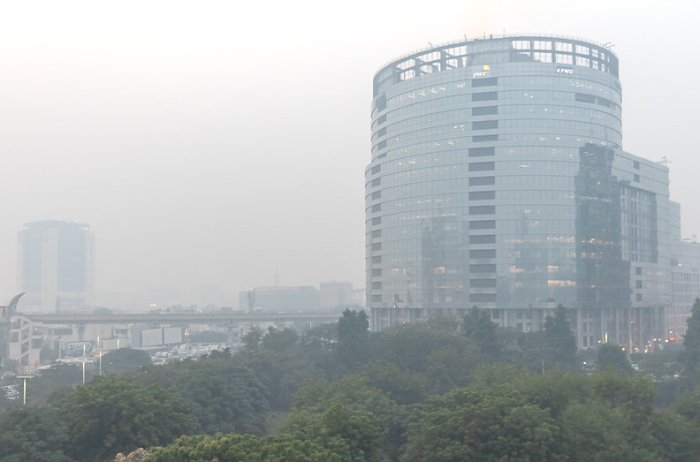Parliamentarians’ Group for Clean Air (PGCA) releases compendium and deliberates on charter of demand to strengthen government’s efforts towards achieving clean air
Taking note of the poor air quality in various parts of the country and its impacts on human health, the Parliamentarians’ Group for Clean Air (PGCA), a consortium of 35 Members of Parliament across party lines, launched a compendium on Sunday. The objective was to empower their peers to monitor factors impacting levels of air pollution in their constituencies and seek answers for better implementation of government policies.
The effort was facilitated by Swaniti Initiative, which serves as the secretariat to the PGCA. Taking note of the poor air quality in various parts of the country and its impacts on human health, the PGCA held a two-day clean air workshop with the MPs in Gurgaon over the weekend.
A compendium on air pollution was released and a charter of demands was deliberated upon by the participating MPs.
The key highlights of the charter are integration of air quality with public health in policy matters, the installation of appropriate infrastructure in rural and urban areas alike to capture even finer pollutants, heeding the airshed approach at the municipal or city-level, international cooperation to reduce the effects of transboundary effects of air pollution; partnerships of industries with the government and other stakeholders to adopt clean air initiatives.
The charter will be presented to the Union minister for environment, forest and climate change Bhupender Yadav and several state governments.
The monitoring indicators mentioned in the compendium are aimed to enable the MPs to monitor the programmes related to air quality in their respective constituencies and hence strengthen the government’s efforts.
The compendium has 14 monitoring groups and gives actionable indicators on how the MPs can check the status of the problem and the progress of solutions as outlined in the various policies of the government. The monitoring groups will cover air quality, road dust and construction activities, open waste burning, industrial air pollution control, green cover plan, public transport and electric vehicles, crop residue burning, clean energy, mining, public health, training and capacity building and evaluation of existing programmes.
“We are really encouraged to see the MPs coming together for the clean air workshop. The alarming levels of air pollution have been a growing concern for our country, and it’s time we address it collectively. We hope to see more initiatives and actions taken to combat air pollution for a healthy future for our citizens, ” said Lok Sabha MP and PGCA convener Gaurav Gogoi.
About The Author
You may also like
Delhi-NCR most polluted region in India, Karnataka the cleanest air in India: Report
Outdoor air quality chronically underfunded, finds State of Global Air report
PM2.5 shortening average life expectancy of Delhi residents by almost 12 years
PM 2.5 air pollution increases anti-biotic resistance globally, India risk increases 2.5%
Green court forms panel to release air pollution control norms around hospitals with in the next 3 months


